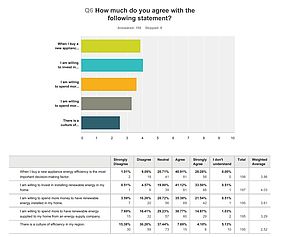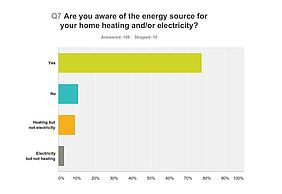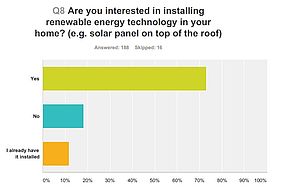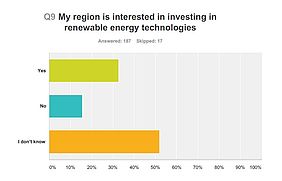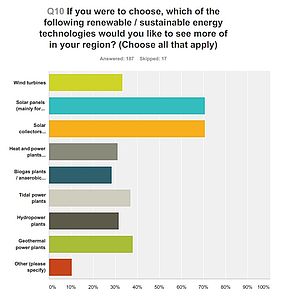The SECURE partners, through the project partner the Ecology Action Centre (Canada) have published the results of the Community Energy Surveys taken place in Donegal and Leitrim (Ireland), Derry and Strabane (Northern Ireland, UK) and Nova Scotia (Canada).
This is the second article about the conclusions from this survey.
The citizens that have participated, have ordered the following statements from most agreeable to lease agreeable:
- 1. “I am willing to invest in installing renewable energy in my home”
- 2. “When I buy a new appliance energy efficiency is the most important decision-making factor”
- 3. “I am willing to spend more money to have renewable energy installed in my home”
- 4. “I am willing to spend more to have renewable supplied to my home from an energy supply company”
- 5. “There is a culture of efficiency in my region”
When asking if they are aware of the energy source for their home heating and/or electricity, 77.25% of the participants have replied that they are. Furthermore, been asked if they are interested in installing renewable energy technology in their home, 72.87% have answered that yes, they are. However, when asking if citizens know if their regions are interested in investing in renewable energy technologies, 51.87% have replied "I don't know". Only 32.62% of the interviewees were sure about the investing efforts.
Finally, when asking them which renewable / sustainable energy technologies would they like to see more in their regions, participants have chosen different technologies. The most popular ones have been solar panels (mainly for electricity) and solar collectors (mainly for heating). After these two options, geothermal power plants, tidal power plants and wind turbines are the most acclaimed ones.
Read our first article with the energy conclusions about 'Efficient setting for the season' and 'Motivations to reduce energy consumption' (published in May 2017).

